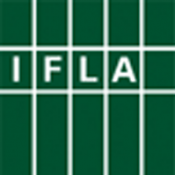
Digital libraries and Copyright: Draft Treaty on Copyright Exceptions and Limitations for Libraries and Archives
In 2004, Chile recommended that the Standing Committee on Copyright and Related Rights (SCCR) of the World Intellectual Property Organization (WIPO) undertake a review of the current state of exceptions and limitations within the larger realm of intellectual property regimes. This recommendation was adopted by WIPO in 2005, and WIPO subsequently initiated a series of studies on exceptions and limitations in specific sectors.
Particularly relevant to the work of IFLA was the study commissioned by WIPO from Professor Kenneth Crews, “Study on Limitations and Exceptions for Libraries and Archives”, which WIPO published in 2008. The results of this study revealed that numerous Member States had either no exceptions or limitations for libraries and archives in their national copyright legislation, or had only minimal, general provisions.
To examine the issues and what should be done for the benefit of libraries and archives worldwide, in April 2009 IFLA and EIFL convened a workshop at the British Library comprising librarians, intellectual property specialists, the World Blind Union, and representatives of other NGO's to develop a set of principles that should drive creation of an appropriate instrument to facilitate the mission of libraries throughout the world.
At its World Library and Information Congress in Milan in 2009, the IFLA Governing Board approved the principles, and asked the Chair of IFLA's Committee on Copyright and Other Legal Matters to appoint a working group to draft an instrument, based on those principles, for consideration by the Member States of WIPO. After wide consultation with librarians, representatives of Member States and other knowledgeable individuals, IFLA's working group has developed a “Treaty on Copyright Exceptions and Limitations for Libraries and Archives”. In preparation for the work on exceptions and limitations for libraries and archives scheduled for November 2011, we offer this proposal to further informed discussion of the issues.

